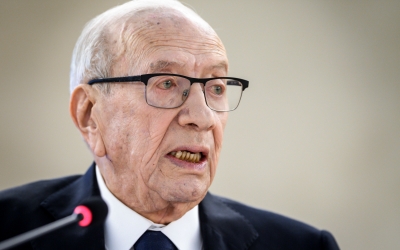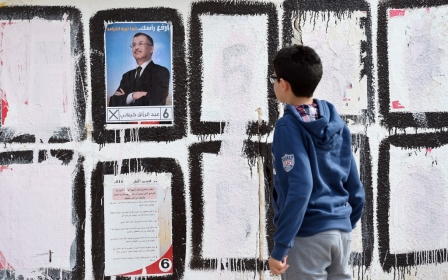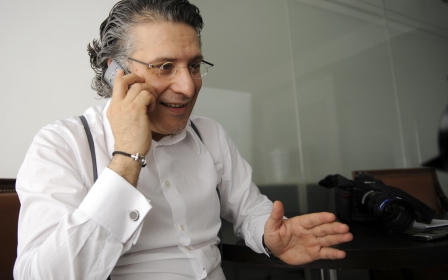Tunisian president discharged from hospital, returns home

Tunisia's 92-year-old president, Beji Caid Essebsi, who was hospitalised last week in critical condition, returned home on Monday after having recovered, said a statement from Essebsi’s office.
"The head of state left the military hospital to his residence in Carthage after having received the necessary treatment and having recovered," the statement read.
Essebsi has been a prominent figure in Tunisia since the overthrow of veteran autocrat Zine El-Abidine Ben Ali in 2011, which was followed by uprisings against authoritarian leaders across the Middle East, including in nearby Libya and Egypt.
Several politicians, including members of parliament and party leaders, have been calling for transparency on the president's health since he was hospitalised last Thursday.
Essebsi was taken to the military hospital in Tunis for a "serious illness", his office said at the time, the same day that twin suicide attacks claimed by the Islamic State (IS) group killed a police officer and wounded several other people.
After his hospitalisation, another key advisor, Firas Guefrech, described the president's condition as "critical", and in a later tweet said Essebsi was "stable".
The president's son, Hafedh Caid Essebsi, spoke late Thursday after visiting his father in hospital of "the beginnings of an improvement" in his condition.
His son also posted on Facebook on Monday that the president is in “normal health” and will return to work in the next few days, Reuters news agency reported.
In April, Essebsi announced he would not be standing for re-election in the upcoming 17 November elections, saying it was time he made way for younger leaders.
Essebsi was appointed interior minister in 1965 by Tunisia's first post-independence president, Habib Bourguiba.
Over the years, Essebsi has also served as director-general of the national police, foreign minister, and ambassador to France and Germany.
Middle East Eye delivers independent and unrivalled coverage and analysis of the Middle East, North Africa and beyond. To learn more about republishing this content and the associated fees, please fill out this form. More about MEE can be found here.





